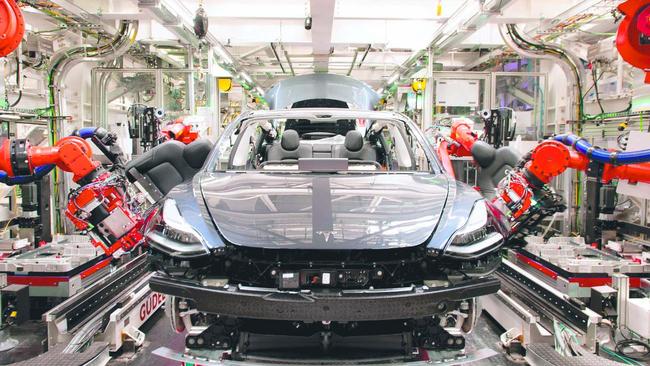Future Victoria: Workers upskill as technology changes jobs
Many jobs Victorians will be doing in the next 30 years haven’t even been invented yet, experts say. But there are some key ways to future-proof your career.
Future Victoria
Don't miss out on the headlines from Future Victoria. Followed categories will be added to My News.
Advances in technology are driving workers to adapt new skills, while some are worried their job may not exist in the future.
About a third of Victorians believe they will need to upskill to keep up with the pace of change.
A PwC Australia survey of more than 2900 employed people found the majority expected technology to impact their work in the future — with only 20 per cent saying it would have no impact.
The results found 11 per cent of people said they would either have to change their job or career path because of technology.
Those who were most concerned about changing jobs or career paths had lower life satisfaction, the survey showed.

Helen Green, who runs Melbourne career counselling service Career Confident, said most workplaces were facing a “rapidly changing environment”.
“We will all need to be more technologically aware to stay relevant,” she said.
“Though some industries will be impacted harder and quicker than others.”
She said there were concerns for industries at risk of automation, with research indicating some jobs could be obsolete within 15 years.
But it was not all doom and gloom, she said, adding that “many of the jobs we will be doing in 30 years have not been invented yet”.
“Upskilling will be vital, along with resilience, flexibility and a willingness to embrace new ways of going about tasks.”
She said professional development and ongoing training were also fundamental for workers to thrive as people face more rapid job restructuring.
MORE FUTURE VICTORIA NEWS:
HOW TO USE THE INTERACTIVE MAP
THE BEST PLACES TO WORK AND LIVE IN MELBOURNE
HOW VICTORIANS WILL GET TO WORK AND AROUND IN 2030
Clients who were most concerned about the impact of automation tended to be in the manufacturing sector, particularly workers mid-career, she said.
“While all occupations will be impacted by technological disruption to some degree, those likely to be impacted the most, and sooner, include manufacturing and transport, motoring industry, travel and printing sectors, retail and routine based jobs, such as data entry.”
Jobs involving direct care and significant human interaction were likely to be impacted less, she said.
